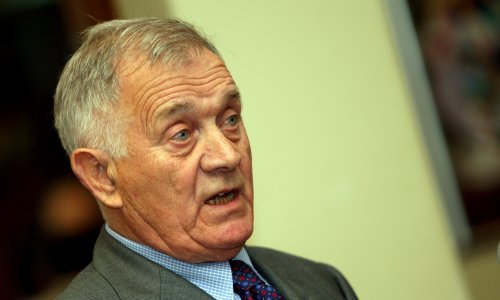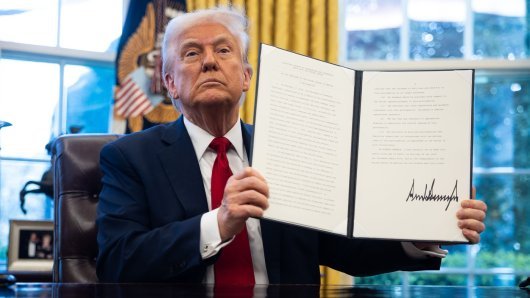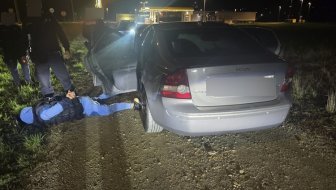The Appeals Chamber of the International Criminal Tribunal for the former Yugoslavia (ICTY) in The Hague is to deliver its judgement in the case of Croatian generals Ante Gotovina and Mladen Markac on Friday, a year and seven months after the Trial Chamber sentenced Gotovina to 24 years and Markac to 18 years in prison for war crimes committed during and in wake of Operation Storm in the summer of 1995.
The hearing is scheduled to start at 9am, and the defence team for General Gotovina, who have contested all key points of the Trial Chamber's ruling, believe that the final judgment will serve justice.
"The Gotovina Defence is awaiting the Appeals Judgment like everyone else. We trust that the Appeals Chamber will ensure that justice is done," defence attorney Luka Misetic said on his Twitter profile last week.
Attorney Goran Mikulicic, who represents General Markac, said this week that his client was eagerly awaiting the judgment like everyone else and that his health had substantially improved following a recent surgery.
The Trial Chamber found that at the very start of Operation Storm, a combined military and police operation that regained control of Serb-occupied areas of Croatia, indiscriminate shelling by Croatian forces forced the Serb population to flee, and that this was part of a plan developed by the Croatian political and military leadership headed by President Franjo Tudjman at a meeting on the island of Brijuni on July 31, 1995. The Trial Chamber described the plan as a joint criminal enterprise and said that the two generals were members of that enterprise.
The first-instance judgment drew strong condemnation in Croatia and was regarded among the Croatian public as a judgment against the 1991-1995 Homeland War and legitimate actions that secured freedom and independence for Croatia.
Already in their initial reactions the defence attorneys for the two generals said that the Trial Chamber's findings of a joint criminal enterprise, persecution of the Serb population and the culpability of their clients were based on the charge of indiscriminate shelling committed with a total of 65 artillery shells. The defence teams claimed in their appeals that the Trial Chamber committed an error of law in finding that Croatian artillery attacks were unlawful, and called for an acquittal of their clients.
In his address to the Appeals Chamber at a hearing in May this year, General Gotovina said he deeply regretted that civilians had been killed and their homes had been demolished after the operation, but that he could not be held responsible for something others could have done or had failed to do while he had been fighting and leading operations in Bosnia. "Even today I am convinced that I did my duties to the best of my ability," he said then.
General Markac said in his address that he was not a member of any joint criminal enterprise or a war criminal. "I did not plan, commit or conceal any crime because that would not be in line with my principles of life," he told the judges.
During the appeals proceedings, the two defence teams tried to introduce a series of new evidence, but the Appeals Chamber refused it, arguing that similar evidence had been admitted sufficiently at trial or that some of it had been available before and should have been presented by the defence at trial.
Among such evidence were minutes of meetings of the Supreme Defence Council that took place in Belgrade at the time of Operation Storm, which showed that mass-scale departures of Serb civilians from Croatia occurred after a decision by the local Serb leadership and were not the result of Croatian shelling. Other evidence referred to expert reports by respectable Western legal and military experts concerning the legality of attacks and the nature of artillery attacks by the Croatian Army during Operation Storm.
Croatia tried to get involved in the case as an amicus curiae, or a friend of court, but the Appeals Chamber rejected its request. Last year, Croatia formally asked to be awarded the status of amicus curiae, believing that it could assist the Appeals Chambers on three issues: the joint criminal enterprise, excessive shelling and the standard of culpability in the Trial Chamber's judgment.
A surprising element in the appeals proceedings was a motion which the Appeals Chamber addressed to the Office of the Prosecutor in July, asking it to say whether it thought that alternative modes of liability based on command responsibility or on aiding and abetting a joint criminal enterprise could be ascribed to the appellants in case the two were found not guilty of unlawful artillery attacks or of membership in a joint criminal enterprise.
Croatian legal experts said that the motion could show that the Appeals Chamber did not believe in the joint criminal enterprise theory and was seeking other ways of determining their culpability.
While the prosecution believed that it was possible, the defence teams said that the Trial Chamber provided no findings for the conviction of the two generals for aiding and abetting the joint criminal enterprise or for command responsibility.
"If the Appeals Chamber finds that Gotovina was not a JCE (joint criminal enterprise) member and not liable for unlawful artillery attacks, it should overturn his conviction and enter a Judgment of not guilty on all counts," the Gotovina defence said in its submission in August.
The Gotovina defence further said that if their client is found not guilty of unlawful artillery attacks on Knin, Benkovac, Obrovac and Gracac, which constitutes the grounds of his culpability as a member of the joint criminal enterprise, he could not be found guilty of aiding and abetting such enterprise either and must be acquitted of persecution and deportation of Serb civilians.
The defence teams noted that basic legal principles decreed that the Appeals Chamber may not pass judgement on a matter that was not tried in the first instance.
At the time of Operation Storm in August 1995, Gotovina served as Commander of the Split Military District and Markac as Commander of the Special Police. Gotovina has been in the ICTY's custody since December 10, 2005 and Markac since March 11, 2004. The trial opened on March 11, 2008.




































